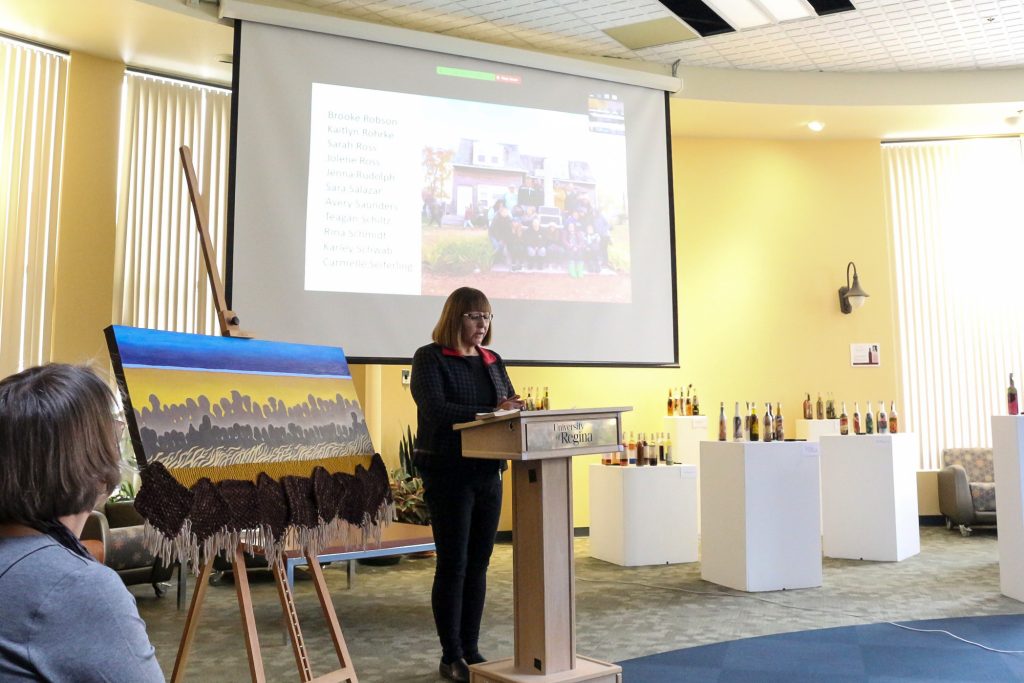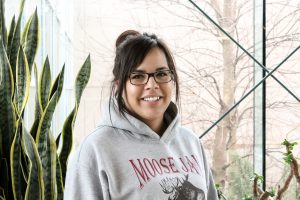
A Michif 100 language course is now being offered to Saskatchewan Urban Native Teacher Education Program (SUNTEP) Regina students. SUNTEP Regina Coordinator Janice Thompson says, “What makes our program unique and distinct is that we are the first post-secondary institution to offer [the Michif] language course.”
Michif is the indigenous language of many Métis. However, “the Michif language which was once common in Métis communities is now considered an endangered language as there are fewer that 1000 people who speak it.”[1]
Thompson says, “Offering the Michif 100 course continues to reaffirm our commitment to Métis people alongside our mission statement: to promote the renewal and development of Métis culture through research, materials development, collection and distribution of those materials and the design, development and delivery of Métis-specific educational programs and services.” The introduction of the new course was celebrated at the Student Success Celebration, held March 7, 2017.
Gabriel Dumont Institute – SUNTEP, in partnership with the University of Regina and University of Saskatchewan, has been offering elementary teacher training for over 35 years and currently boasts 1206 graduates from Regina, Saskatoon, and Prince Albert programs.

First year SUNTEP Regina student Jenny Veilleux says she feels “fortunate to be one of the first students in Canada to take a Michif class, which is the first one to be offered anywhere ever. Michif is a dying language, with few fluent speakers; it needs to be saved so it can flourish once again. My family was enfranchised in the 1950’s, which unfortunately means they assimilated into the European culture.”
Jenny continues: “Ultimately, they lost most of the languages that they were born to speak during the process. My grandparents spoke between 5-7Indigenous languages and Michif was one. I only grew up hearing phrases or words, never being fully immersed in the language. To be learning Michif now at my age, as an adult, is exciting, but also very difficult. Learning the language of my people is very important to me as it enhances more of what I’m learning about my traditions and culture. This is necessary for many people in Canada, to prevent it from being completely lost.”
Follow us on social media